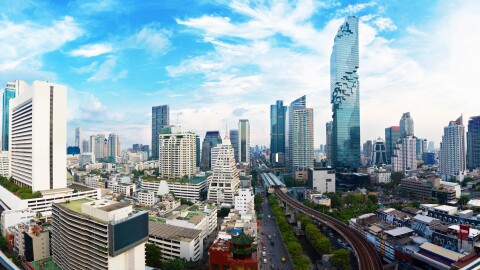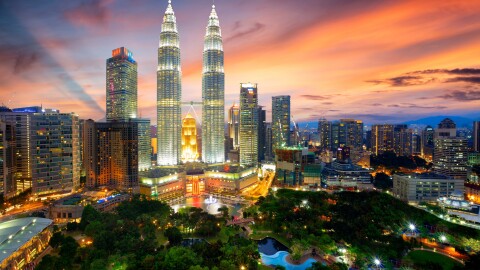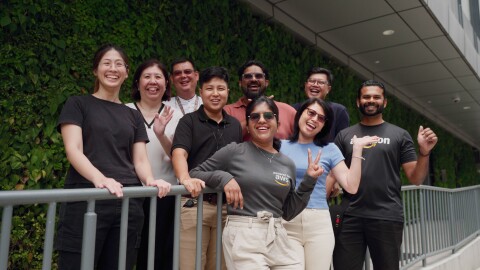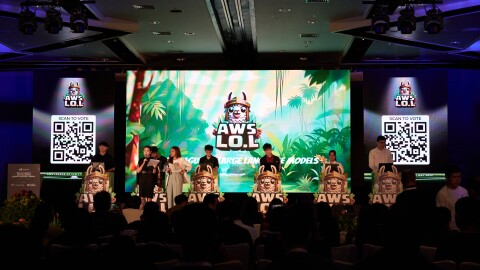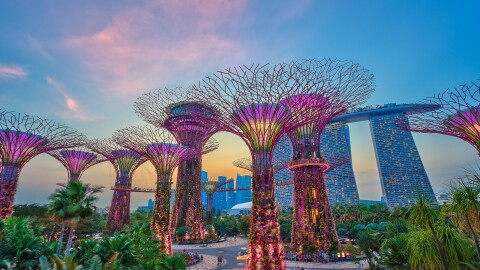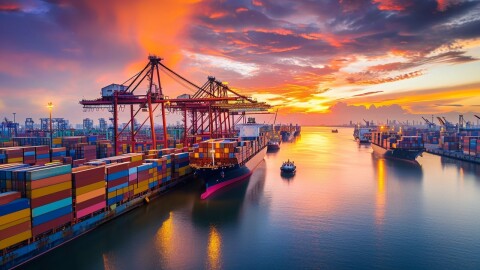According to the United Nations, 50% of the world’s population could live in water-stressed areas by 2025, with low-income families bearing the brunt of this crisis. For industries where water is key to operations, it’s crucial for companies to invest in innovation—including new technologies as well as business and financing models—that will address the water scarcity challenge.
At Amazon Web Services (AWS), water is essential for cooling our data centres, reducing their energy use and emissions. But we believe we can contribute to solving the water crisis by returning more water to communities than we use in our direct operations, and have pledged to be water positive by 2030.

Already, AWS data centres are designed for industry-leading water efficiency, using on average less than one cup of water (0.19 litres) globally to cool one kilowatt hour of IT load, compared to the industry average of 1.8 litres for the same load.
We’re also innovating to further lower water use across facilities by using cloud technologies to continually improve water efficiency; investing in projects that deliver water back to communities; actively working to ensure that we’re not using potable water where we don’t need to; and using more sustainable sources like treated wastewater.
Here are four of our key water sustainability initiatives in Singapore.
Using NEWater, the Singapore solution
As a tiny nation with limited water reserves and a dense population, Singapore has had no choice but to take water scarcity seriously. Over the past decades, the Little Red Dot has made significant investments into innovative water solutions. It also relies on technological advancements like desalination and water recycling to fulfil a major portion of its domestic water demand.
NEWater is one visionary initiative by by the PUB, Singapore's national water agency, which further purifies conventionally treated wastewater through microfiltration, reverse osmosis, and ultraviolet irradiation. This results in ultra-clean water that can be used for industrial and air-con cooling purposes, ensuring that potable water is reserved for human consumption.
In Singapore, all AWS data centres are running on recycled NEWater. To further improve water efficiency, AWS uses real-time water-use data to identify leaks, pilot new treatment technologies, and explore a range of operational changes. We also leverage rainwater harvesting to take advantage of Singapore’s high rainfall to supplement our water needs.
Our numerous water sustainability efforts in Singapore have been recognised by the PUB. On 26 March 2024, AWS was awarded the authority’s Singapore Watermark Award[1] and the Water Efficiency Award[2] in the data centre category.

Harnessing advanced water cooling technology
Alongside using recycled water, we use advanced cooling tower technology in our data centres in Singapore, and have automated the cooling tower water treatment process with the aim of ensuring our Cycle of Concentration (COC) remains as high as possible.
Maintaining a high COC means that water will be reused more times in our cooling towers before it is discharged, minimising the volume we need to withdraw from the water system.
Piloting a scalable water recycling system
Together with a local startup, Hydroleap, AWS has piloted and deployed a water recycling system in Singapore, with plans to scale this across the Asia-Pacific region.
Hydroleap developed a unique electrooxidation technology which was customised to improve the efficiency of AWS cooling towers, helping us meet our water efficiency goals.
"This ongoing collaboration between Hydroleap and AWS, which started nearly two years ago, has helped us to improve and fine-tune our patented electrooxidation technology to be an effective tool for meeting AWS’s water efficiency goals,” said Mohammed Sherafatmand (PhD), founder and chief executive officer of Hydroleap.
“Now, with the available data from the existing projects, we can unleash the potential impact we can make together across the Asia-Pacific region and even globally."
Creating a water-conscious community
It takes a village to create sustainable and long-term impact, which is why we see community education and awareness of water sustainability as critical.
At AWS Singapore, employees have access to educational tours of the NEWater visitor centre to better understand Singapore’s ‘Four Taps’ strategy for maintaining the domestic water supply through four different sources. We also support STEAM education projects with the Singapore Science Centre that aim to educate students on sustainability, and how Singapore’s natural resources can be used most effectively.
AWS volunteers also regularly participate in waterway cleaning initiatives with the Waterways Watch Society to keep the water bodies around Singapore’s Marina Barrage clean from rubbish.
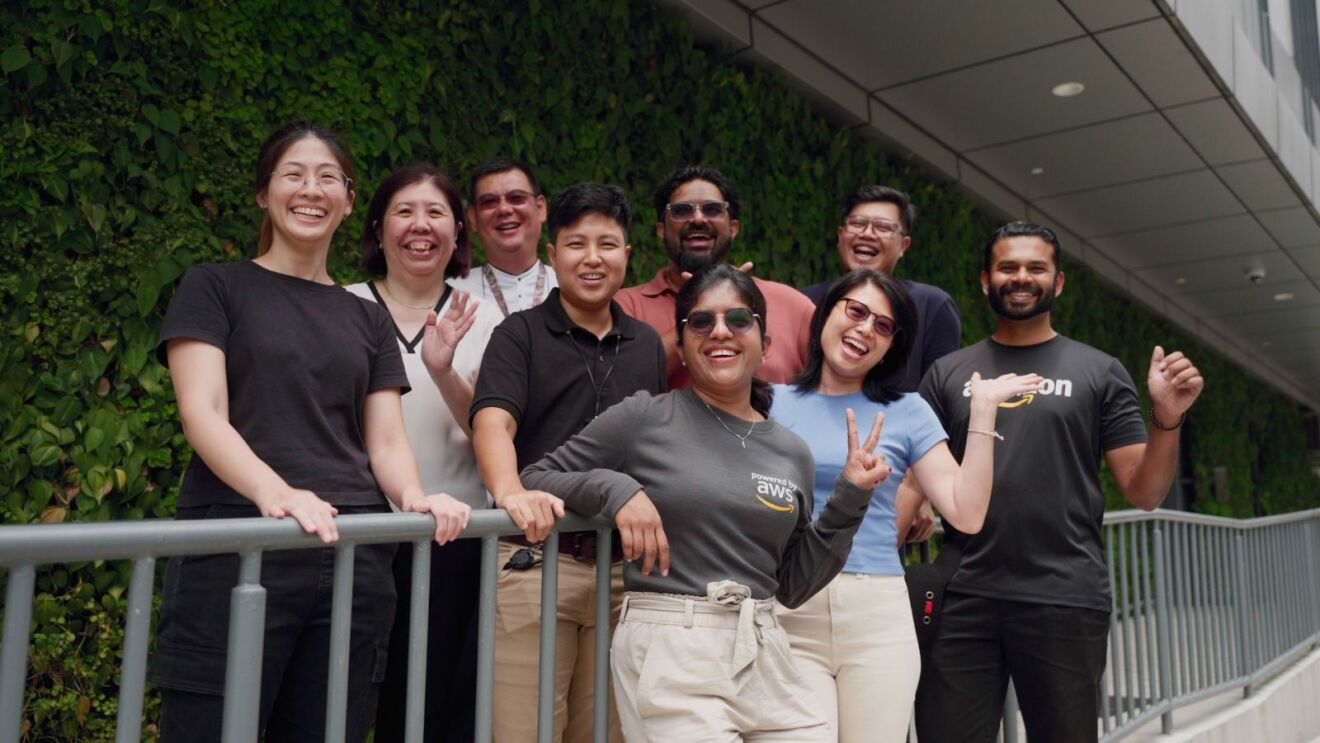
Achieving water positivity will require more new solutions and collaborations involving employees, global non-profits, local communities, and public utilities, but we’re encouraged that we're all moving forward with a singular goal in mind: to create a better future for our planet.
More information about AWS’s water-positive commitment can be found on Amazon’s Water Stewardship website.
[1] The Singapore Watermark Award is the nation’s highest accolade honouring organisations for leadership and outstanding achievements in advancing the water sustainability agenda in Singapore. It is awarded only to organisations which have demonstrated a strong commitment to water management, sustained efforts in efficient water use, and innovation in water conservation initiatives.
[2] The Water Efficiency Award is awarded biennially to the top water efficiency performers in respective sectors, whose premises score lowest according to the Water Efficiency Index or have the highest water recycling rates.





